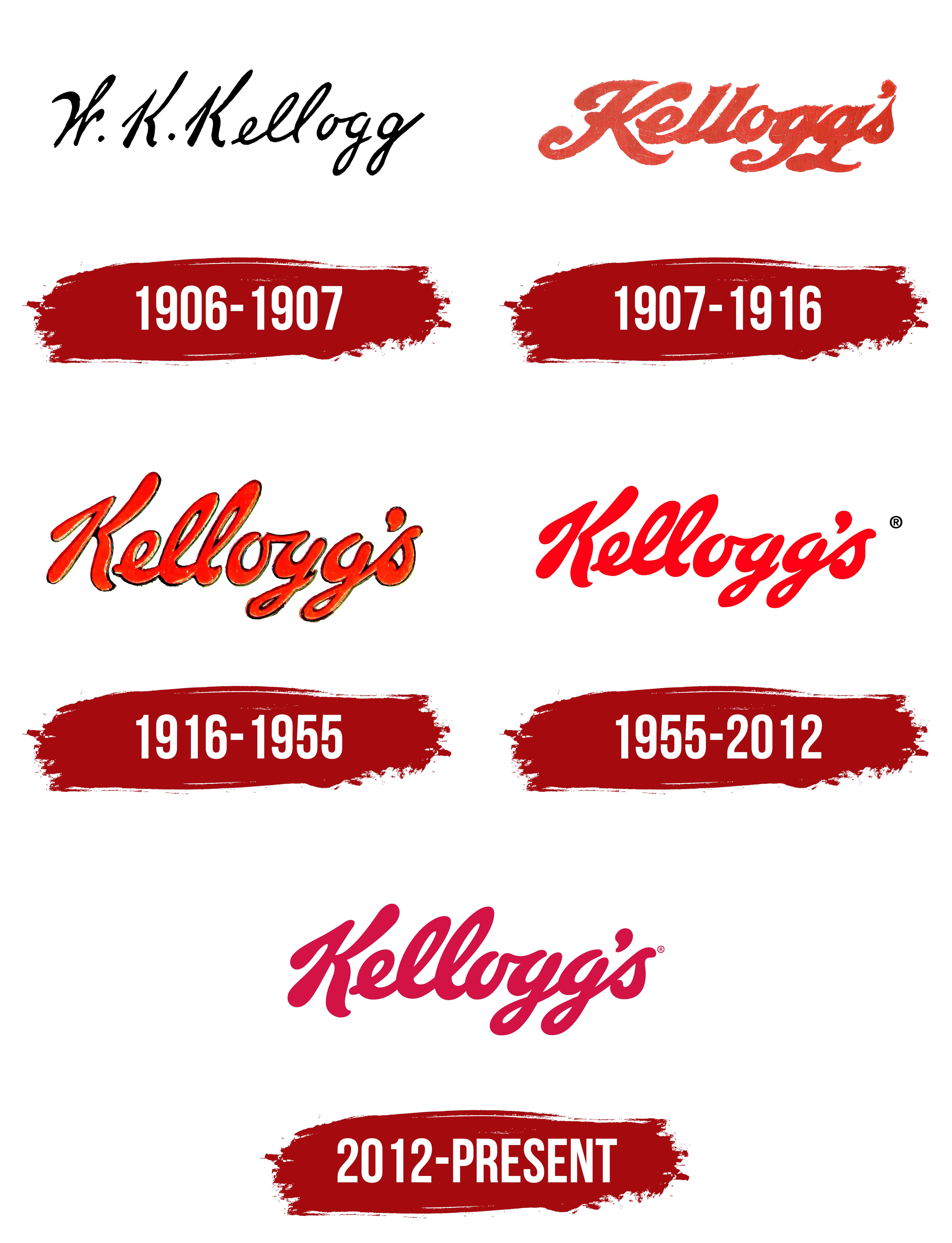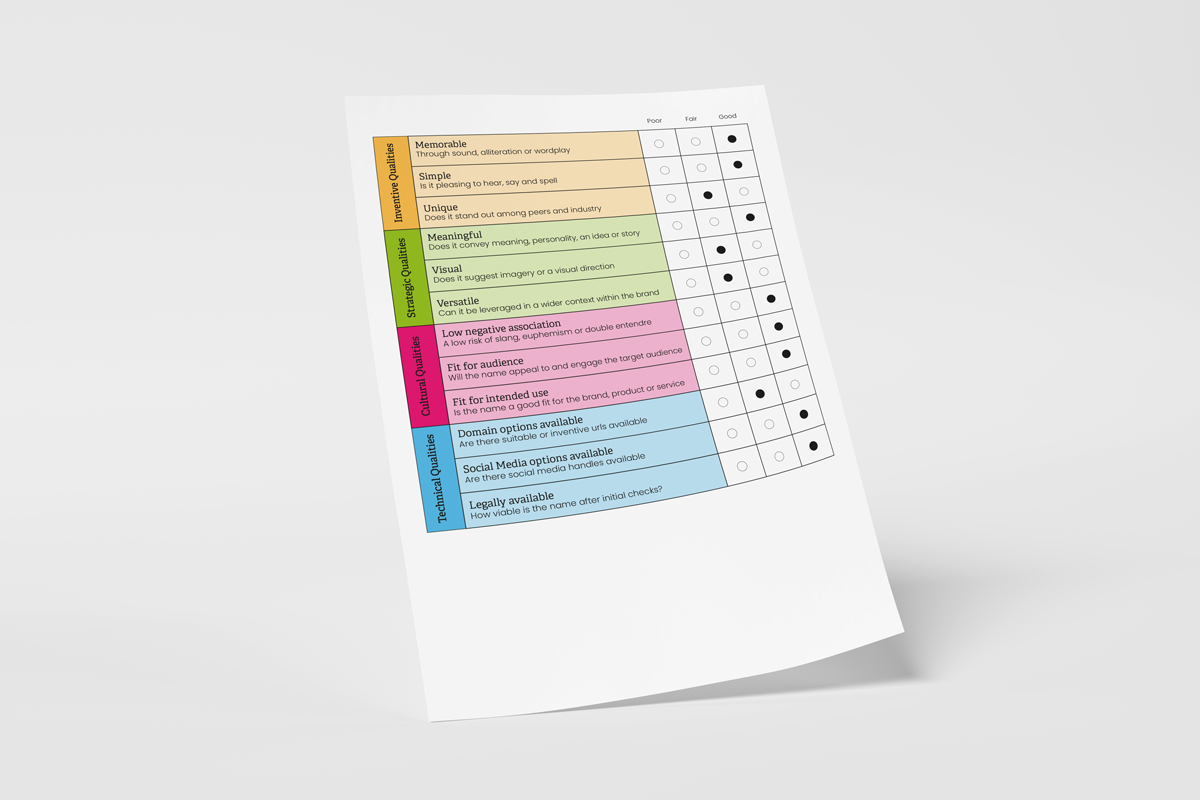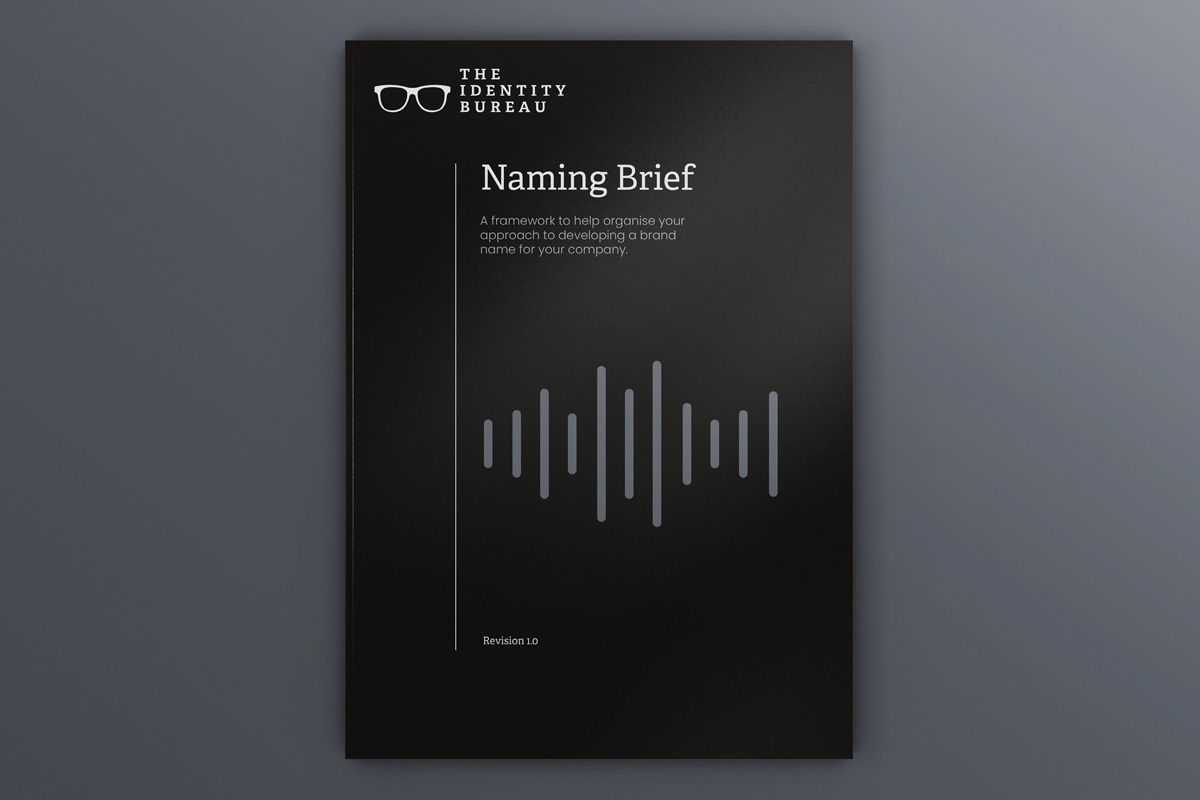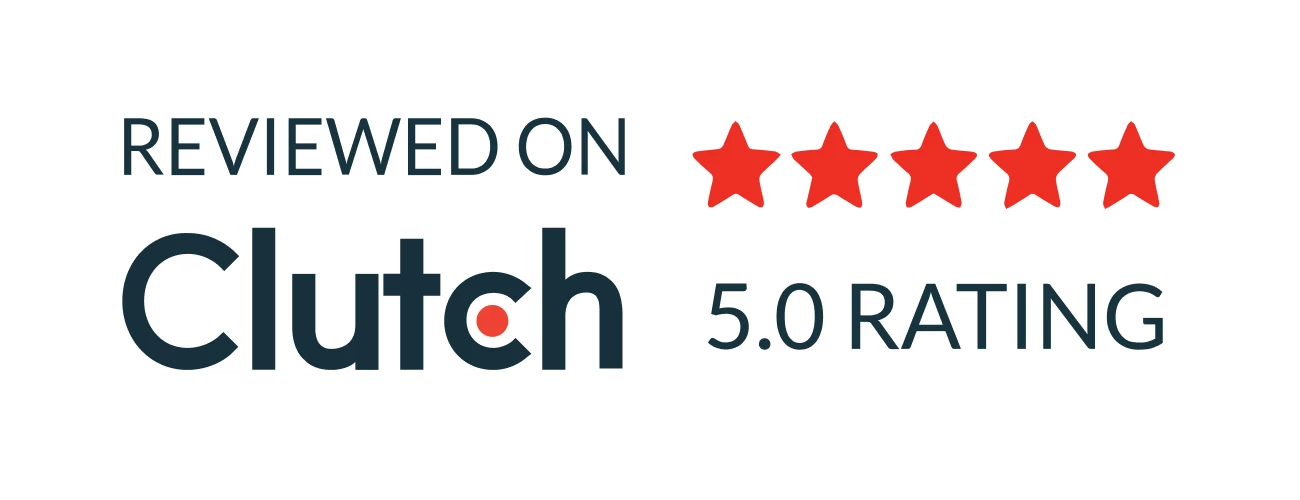Your brand name should outlast everything else...
There are few reasons why your brand name should outlast the other elements of your brand identity.
Article Summary
In this article you will learn:
• Your brand name should have the most longevity, enduring far longer than logo updates or website refreshes, and it is the most recalled element of a brand.
• Avoid names that are bland, hard to spell/pronounce, or too restrictive to your current business, as these require costly and disruptive name changes later.
• Before naming, define your fundamentals: what you are naming, who your target audience is, and what core ideas (like purity for Innocent Smoothies) the name must convey.
• The name is the foundational vessel that holds your brand identity and informs its direction, meaning interesting names lead directly to interesting brands.
• Do not settle for a weaker name by prematurely searching for domains; prioritize a high-quality name first and then explore modern Top Level Domains (TLDs) if a .com is unavailable.
Added on:
Updated on:
File under:
Written by:
Your brand name is the element of your brand with the most longevity (or, at least it should be...).
When done properly, (with research, strategy, and your audience in mind), good brand names can have great longevity, outlasting logo re-designs, brand refreshes and website updates.
Just take a look at the evolution of the Kelloggs's logo, or the Google logo and you'll see the brand name has remained constant, even when the visual identity is updated and the website is refreshed.
In the graphic of the Kellogg's logo below from an article by Logos-World you'll see the brand name has remained consistent for almost 120 years, while the visual identity has evolved (albeit subtly).

Given its age, it would be unwise for a brand as ubiquitous as Kelloggs to change its name (due to the dominance they have in the market and its brand equity). Similarly, when we look at Google, the fact that its sheer market dominance has allowed it to become a verb in our culture, proves has reached an enviable position in our collective minds. When did you last exclaim ‘I’ll just look that up on a search engine’?. You didn’t. What you probably said is ‘I’ll Google that’.
We can say the same for the vacuum brand Hoover. When you last surveyed your dusty floors did you begrudgingly decide to ‘operate the Dyson’, or ‘do the hoovering’ (regardless of the specific manufacturer of your vacuum cleaner). These examples are of course down to market dominance, but the point is, a good brand name can (and should) last but only when supported by a solid naming approach and a supporting cast of brand elements.
But regardless of the age of your company, product or service, in practice, the brand name is the most recalled element of a brand and the first thing someone will tell you in conversation, or when making a recommendation.
However recall is only present if the name is memorable or distinctive in the first place. One may not readily recall the countless professional service firms with utterly uninspiring founder-based names, (a random example, Beers, Hamerman, Cohen and Burger PC), but with some imagination and a creative brief you can stand out in your market with an evocative and memorable name, even in an industry traditionally seen as conservative.
As the adage goes ‘you can't brand what isn't named’ so choosing a name carefully, with consideration, is a vital first step in developing a brand. And once an effective brand name is chosen, as long as it meets certain criteria, there should be little reason to change it.

What negative factors might force a name change or impact longevity?
Not all name changes are the result of negative connotations or short-sightedness at the briefing stage. Rebranding, management buy-outs and company can all necessitate a name change, but in the early stages of developing a name keep thse potential pitfalls in mind…
Your name is bland.
If your brand name is bland, undifferentiated, or hard to say and spell then people will not be able to recall it. Professional service firms named after founders are a common culprit. Can you remember the name of the real-life founder-named firm I mentioned earlier in the article? Exactly… Founder-based names, for the most part, lack, imagination and do not convey meaning, personality or ideas.
Your name is hard to pronounce or spell
If they can’t say it, how will they remember it? Large brands with large budgets can and do overcome this problem, so having a hard-to-spell or pronounce brand name won't be the death of you if you’ve managed to achieve success in spite of it. So I’m sure Fjallraven, Huawei and Balenciaga aren’t sweating it right now. But, if you’re starting a business, avoid frustrating spellings of words in order to appear edgy or differentiated. You will spend your life spelling out your name, correcting people who say it wrong or reminding people what your name actually is.
Your name is too restrictive
Unless you’re absolutely certain about your niche be careful to avoid a restrictive name that will demand a rethink when your business offering expands… For example, did you know that Fast Signs does website design? That's Pizza Hut does pasta, and dabbled in renaming to ‘Pasta Hut’ (a PR stunt) and simply ‘The Hut’ to suggest a wider menu offering?. Having a restrictive name can cause problems at a later date and should be taken into consideration.
For tips and criteria on developing a brand name with memorability and longevity download my free pocket reference guide to naming here…










